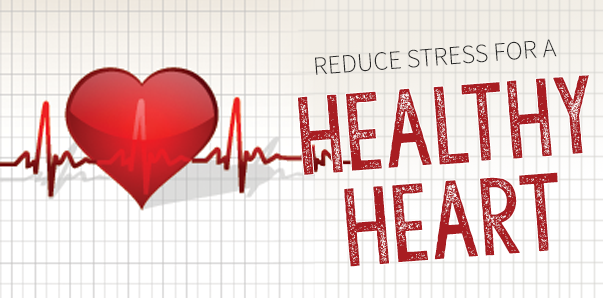Stress is an unavoidable part of modern life. Our bodies are programmed to deal with occasional stress — resulting in improved focus and better mental or physical performance. But living with chronic or daily stress is hard on our physical, emotional and mental systems and can lead to a number of serious health issues, including heart problems.
Health Impacts of Stress
As the American Chiropractic Association (ACA) tells us: “If you’re often stressed, and you don’t have good ways to manage it, you are more likely to have heart disease, high blood pressure, chest pain, or irregular heartbeats…. The stress itself can be a problem. It raises your blood pressure, and it’s not good for your body to constantly be exposed to stress hormones. Studies also link stress to changes in the way blood clots, which makes a heart attack more likely.”
Other health impacts from living with constant stress may include:
- damage to your arteries
- back pain
- higher cholesterol levels
- the development and progression of coronary artery disease
- a weakened immune system
- irritable bowel syndrome and other chronic conditions
When stress leads to depression, anxiety, anger, and social isolation, the risk of heart problems increases. Many people turn to unhealthy habits — like smoking, overeating, or alcohol — to help them deal with their stress; but these are all behaviors that increase the risk of heart disease and stroke.
What Causes Stress
Stress can come from a variety of sources. Whether from job concerns, family conflicts, financial issues, caregiver overload, or health issues, stress triggers are different for everyone.
As the brain reacts to a stressful situation, the physical results are often immediate: anxiety, stomach problems, sweating, racing heart, shortness of breath, irritability and fatigue/insomnia. Over time these physical reactions can lead to larger health problem. But with awareness, practice and some easy lifestyle changes you can keep the damages to a minimum.
Stress Management Tips
The key to lowering the impact of stress on your life (and your health) is to understand what triggers your stress. You probably know the causes already. If not, take some time to write down what is causing you the most stress in your life right now. Then take a look at how you deal with it. If you turn to unhealthy behaviors to help you handle it, rethink that approach with these suggestions for healthier ways to cope.
Physical Ways to Manage Stress
- make exercise a regular part of your schedule: aim for at least three days per week
- get enough sleep: avoid caffeine, alcohol, and “screen time” an hour before you go to bed
- practice yoga
- eat healthier
Emotional Ways to Manage Stress
- think positively — a change in attitude can change a negative into a positive
- don’t try to be “perfect” — set goals, but let the nonessentials fall to the wayside
- try proven stress-relief techniques like: journaling, meditation, and deep breathing exercises
- allow yourself to cry — sometimes just “letting it all out” is a necessary step before you can move onto positive thoughts and actions
- don’t feel guilty about taking some “me time” — do something you love and that calms you down (e.g. enjoy nature, listen to music, visit a spa, etc.)
- get help from whatever source works: self-help books, a counselor, a pastor, friends, or support groups
Try different stress relief methods to find one that works for you then make a habit of the ones you find most helpful to keep your heart healthy.





